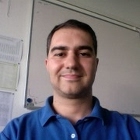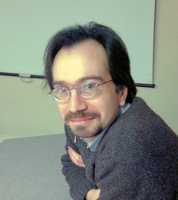
Paris Physics Master





STATISTICAL PHYSICS
Outline of the course:From a mechanical to a statistical description of systems of many particles; The notion of equilibrium; Examples of application of statistical physics in modern science and interconnections with other disciplines and everyday life.
Elements of probability theoryBasic notions and definitions; Simple probability distributions (Poisson, Gauss, etc); The central limit theorem.
Postulate of equal a priori probabilities and statistical ensemblesDensity Matrix; Microscopic definitions of heat and work; Master equation and Langevin equation; Irreversibility as an emergent phenomenon for macroscopic systems; Phase transitions.
Prerequisites:Mandatory:
Useful (not mandatory):
Reif “fundamentals of statistical and thermal physics”
Chandler “introduction to modern statistical mechanics”
The statistical physics course is given by Fabio Pietrucci and Jihad Mourad.

Fabio Pietrucci worked at SISSA (Trieste) and EPFL (Lausanne) before becoming a "maître de conférences" at Sorbonne University in 2014. His research activity is focused on the development and application of new theoretical and computational approaches to study the transformations of matter. He explores the nucleation of crystals, chemical reactions in solution, and the folding of proteins as well as their interaction with other proteins or drugs. The aim is to establish a unified theoretical framework able to reconstruct transformation mechanisms, free-energy landscapes and kinetic rates for a wide range of different systems.

Jihad Mourad is Professor at Univ. Paris Cité, working in the "Astrophysics, particles and cosmology" (APC) lab.